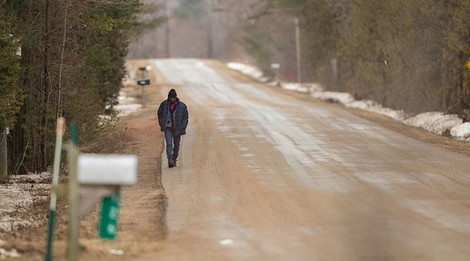Your podcast discovery platform
Curious minds select the most fascinating podcasts from around the world. Discover hand-piqd audio recommendations on your favorite topics.

piqer for: Climate and Environment Global finds
Andrea is a writer and researcher based out of Chicago. Andrea has a Bachelor's degree in environmental science from The Ohio State University and a Master's in Environmental Planning and Management at National Taiwan University, where she specialized in climate adaptation and urbanization. She writes for TaiwaneseAmerican.org, and sends out a biweekly newsletter which includes articles on politics, environment, identity, and intersections of race, class, and gender (http://eepurl.com/bPv-F5).
“Rural America” Doesn't Mean “White America” — Here's Why That Matters
From Brexit to Trump to the upcoming French elections, it seems that the world is increasingly divided between urban and rural lines. In the US, the rural world is often painted as white. But it may surprise you that about a fifth of the American rural population is actually made up of people of color. This segment of the population is marginalized in a number of ways, and the media, academia, and politics seems to have ignored them completely. Mara Casey Tieken is a professor of education who studies "the impact of race in rural communities. Last month, she...decr[ied] our (bipartisan) tendency to treat rural America as a racial and political monolith."
"Communities of color in general have been marginalized from policymaking and from media depictions," and this has led to a disparity between rural people of color and rural whites in indicators like poverty rates and education levels. The two dominate media narratives of rural people, the Andy Griffith kind and the redneck kind, are both white. This may be due to the history of the American demographic landscape.
According to Tieken, this "goes back to our very racialized history, and it’s a direct legacy of slavery. That was a rural phenomenon. We see still people live based off where plantations were historically. Town lines still reflect that old geography. This is very much baked into the picture of the country and our physical landscape, our geography, and oftentimes a lot of people make the argument that policymakers have pitted, either intentionally or unintentionally, poor rural whites against poor rural black folks as a way to dilute power."
But Tieken also outlines what actions may make a difference. Things like more media coverage and community organizing in rural areas can make a difference in the narrative of rural America and build political power in communities that most need it. If these can be achieved, policymakers can be made to take action.
Stay up to date – with a newsletter from your channel on Global finds.
